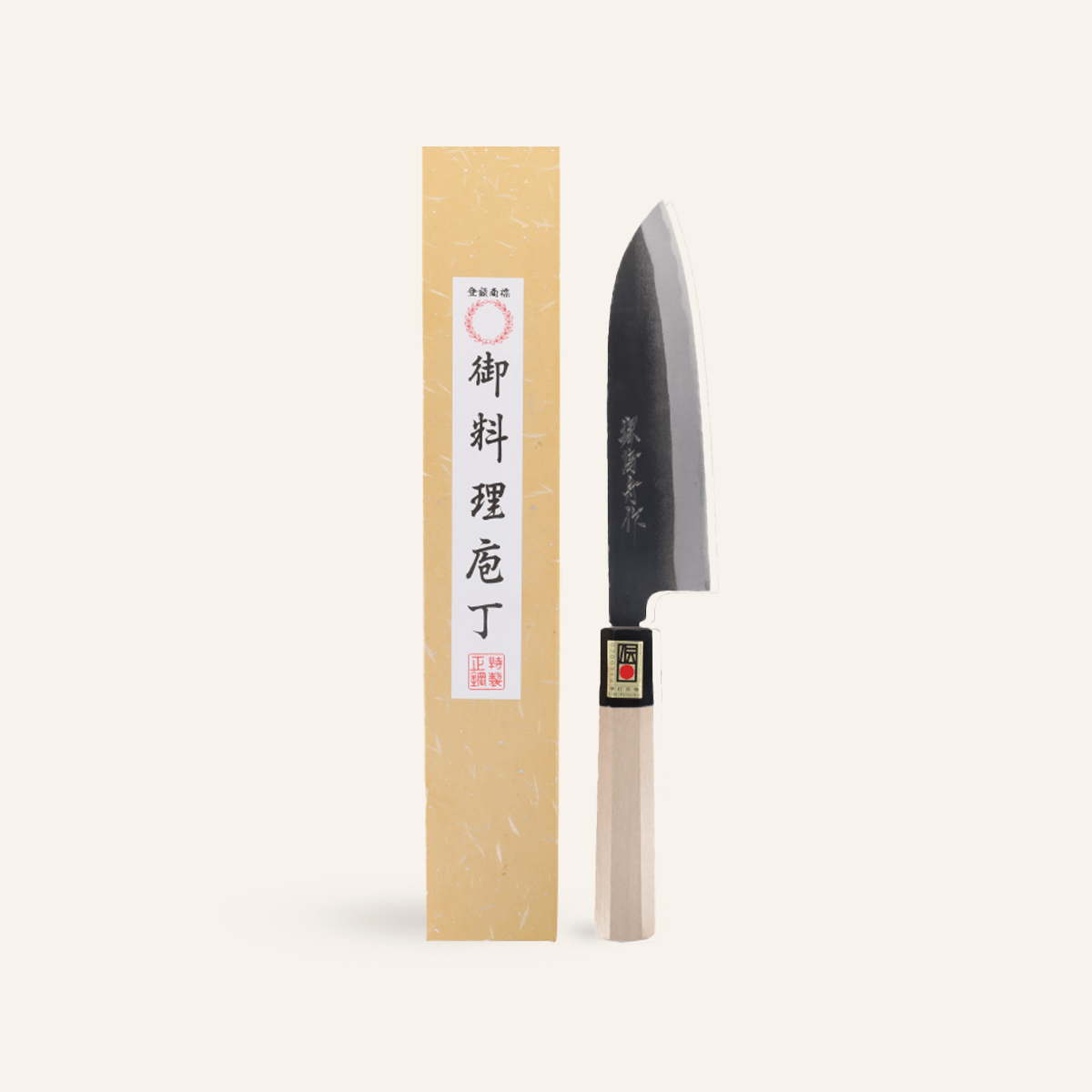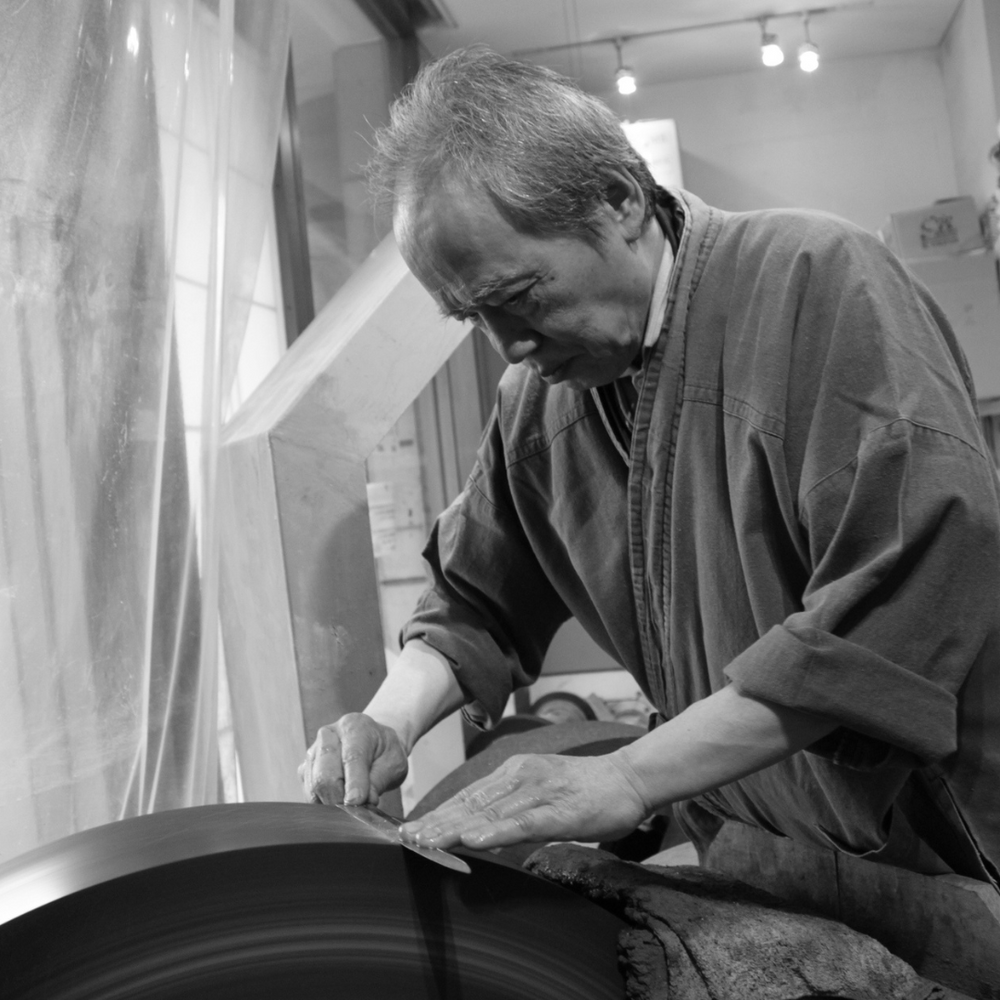Santoku
Santoku multipurpose knife, raw forged, 180 mm
Santoku multipurpose knife, raw forged, 180 mmRef. {{ sku }}: Ref. 511
Low stock
Description
The Santoku, whose name means "three virtues" in Japanese, is a must-have knife in Japanese cuisine thanks to its versatility. It allows you to slice, chop, and mince vegetables, meat, and fish with equal efficiency. Its use is similar to that of the Bunka knife, while offering a double-beveled blade that is easier for European cooks to handle.
This model is forged from Shiro Nigo white steel, a hard and delicate alloy that provides exceptional sharpness. With an HRC hardness of 64-65, the blade guarantees a clean and precise cut without tearing the flesh. The raw forged steel finish gives it an authentic, handcrafted look, while the octagonal handle and Asian buffalo horn ferrule ensure a comfortable, stable, and elegant grip. The combination of the double bevel and the traditional Japanese blade combines the precision of Japanese knives with the ease of use of European knives.
INTERVIEW
The material used for the blades is a mixture of iron and'steel. This means that'Special maintenance is necessary to keep the blades in good condition, in particular to prevent them from'They rust. The blades must therefore be thoroughly dried after use. They must also be sharpened with water stones, available for sale on our website.
COMPOSITION
- White steel
DIMENSIONS
Blade length: 180 mm


Tahara Shunichi
For over 50 years, Tahara Shunichi sharpens and assembles hand-forged knives by Sakai artisans, in the Osaka metropolitan area, a historic city of cutlery. Master of traditional craftsmanship recognized by the Japanese government and Osaka Prefecture, his sensitivity and unique know-how guide him in the design of tools of exceptional quality. Secluded in his small workshop filled with machines, some of which he designed himself, Mr. Tahara single-handedly sharpens a very varied range of knives intended for all types of use: the single-bevel yanagiba for cutting slices of sashimi without crushing the flesh, the deba for lifting fish fillets, the nakiri with its wide blade for slicing and removing food, the versatile gyuto or the petty, reminiscent of the European paring knife.























